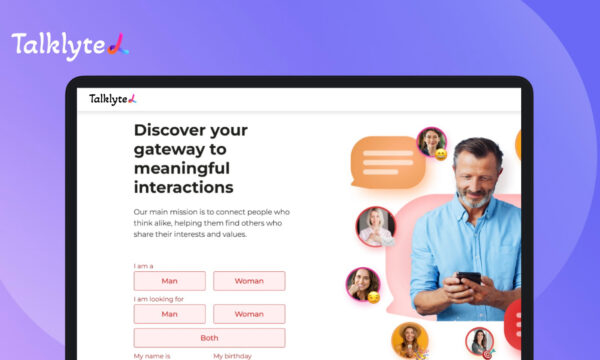How modern technology has impacted online entertainment

The advent of modern technology has altered the shape of the world of online entertainment, changing how we get entertained or connected with digital content. From watching movies through streaming to living a virtual life through the concept of virtual reality (VR), the impact of technology is widespread and transformational.
This is discussed in quite a number of aspects where technology has revolutionised digital entertainment, covering many areas of the sectors and new creations done so far that have currently changed many things in the modern world regarding online entertainment.
Ten ways modern technology has impacted online entertainment
The online gaming landscape has been profoundly affected by ten significant technological advances. They include:
1. Streaming Services
Based on our experience, streaming services are today’s classical online entertainment battlefield, overthrowing classical cable TV and cinemas. With advanced algorithms and hasty download speeds, Netflix, Hulu, and Disney+ have guaranteed connections to their immense on-demand libraries.
More importantly, through personalised playlists and catered recommendations that specifically cater to one’s preference, convenience has supposedly been given back to the hands of users that have now emerged as empowered ones since this has supposedly modified the paradigm of entertainment consumption.
2. Gaming Goes Digital
The gaming industry has, however, undergone a massive paradigm shift from hardcopy discs to softcopy downloads and cloud gaming. Technological evolution has resulted in better qualities of graphics, virtual reality (VR), and augmented reality (AR) technology among others. The lines between the virtual and real worlds have been so smudged out that gamers are treated to an immersion and interactivity level never felt before.
3. Social Media as an Entertainment Hub
Based on our observations, social media platforms have evolved from mere communication tools to dynamic hubs for entertainment. Platforms like TikTok, with its short-form videos, and Twitch, with its live-streaming capabilities, have become cultural phenomena.
These platforms not only facilitate content consumption but also enable users to actively engage with creators, fostering a sense of community and interactivity.
4. Immersive Experiences with Virtual Reality (VR)
Virtual reality has transcended its gaming origins to offer immersive experiences across various entertainment sectors. Virtual concerts, interactive storytelling, and virtual tourism are just a few examples of how VR technology transports users to new realms, providing a heightened level of engagement and realism.
5. Augmented Reality (AR) Enhancing Reality
Augmented Reality (AR) Enhancing Reality: The introduction of augmented reality has created an extra dimension of interaction within real life. Also, it gives another perspective on life and serves as a new way in which we obtain amusement. Interactive reality is created in applications for gaming, live events, and educational content. This makes the experience more perceptive. AR technology has transformed how entertainment can be experienced by allowing digital interactive overlays to merge with the physical world in innovative and engaging ways for users.
6. Personalisation and AI Algorithms
According to our in-depth research, platforms are using artificial intelligence (AI) algorithms powered by technology to customise content. The streaming service collects user information on preferences, watching history, and behavior to offer customised suggestions for more personalized and interesting entertainment.
7. E-sports
E-sport is an emerging sports discipline created at the crossroads of technology and entertainment, similar to the realm of online games, where opportunities like no deposit bonuses and no max cashout promo are prevalent. Competitive gaming has gained worldwide popularity, paralleling the allure and excitement of online platforms.
The modern era of sports sees many live-streamed tournaments, several professional leagues, and numerous virtual arenas luring millions of fans, with the demarcation line between conventional sports and cyber competitions becoming nonexistent.
8. Blockchain and NFTs in Digital Entertainment
The possibilities opened up by blockchain technology and non-fungible tokens extend to creators of original material. Blockchains are used in transparent royalty payments by musicians, artists, and filmmakers, while NFTs offer new kinds of unique and rare content ownership.
9. Smart Devices and the Internet of Things (IoT)
The growth of smart devices and IoT technology has revolutionised our engagement with entertainment. The convergence of entertainment creates this entertainment system that is seamless using smart TVs, voice-activated assistants, and connected home devices, making it easy for users and providing them with accessibility.
10. Accessibility and Global Reach
Through technology, geographic barriers have been broken, which has allowed content providers to be heard all around the world. Through online platforms’ diversity of shared cultural content, worldwide dissemination of ideas and entertaining experiences occurs. The global interconnectivity fostered by new technologies has created unprecedented opportunities for audiences anywhere to instantly access a huge range of entertainment regardless of their physical location.
Conclusion
The effect of modern media on web-based enjoyment is revolutionary, redefining traditions and generating an interactive and networked digital environment.
The growth of digital world innovation, VR (virtual reality), AR (augmented reality), AI (artificial intelligence), and blockchain will help in the creation of interesting online entertainment for all people on Earth.
The editorial unit




















Facebook
Twitter
Instagram
YouTube
RSS